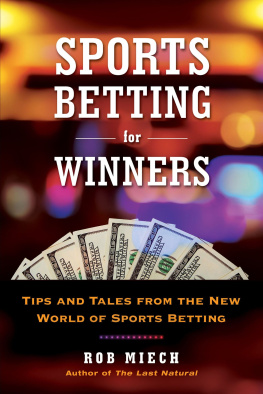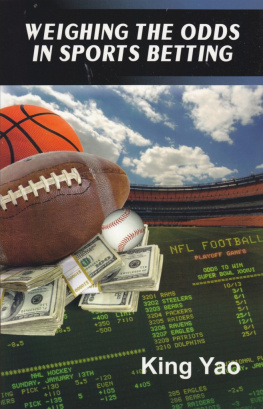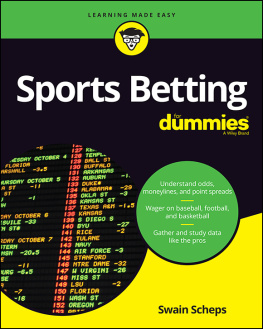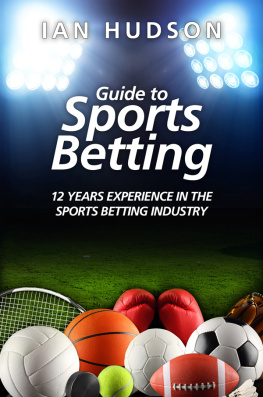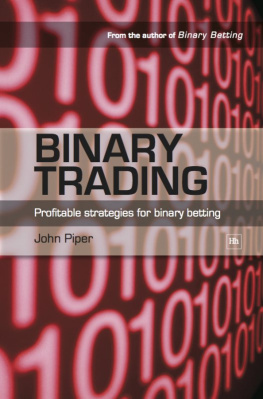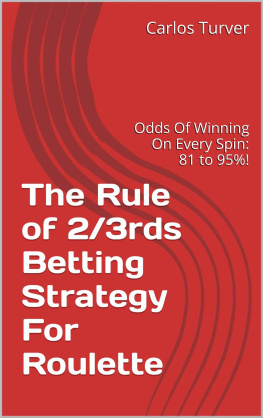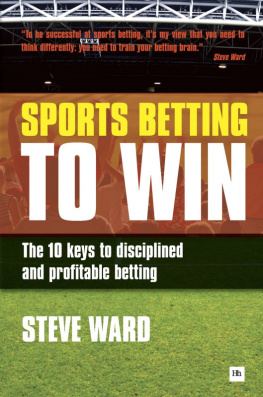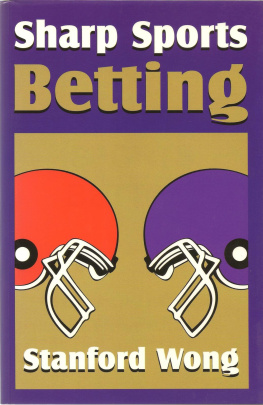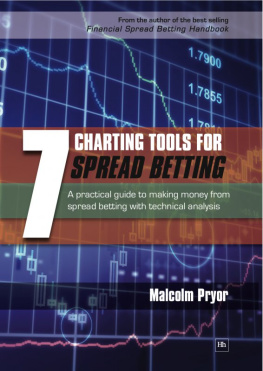David-Lee Priest - The Betting Edge
Here you can read online David-Lee Priest - The Betting Edge full text of the book (entire story) in english for free. Download pdf and epub, get meaning, cover and reviews about this ebook. year: 2011, publisher: Raceform, genre: Romance novel. Description of the work, (preface) as well as reviews are available. Best literature library LitArk.com created for fans of good reading and offers a wide selection of genres:
Romance novel
Science fiction
Adventure
Detective
Science
History
Home and family
Prose
Art
Politics
Computer
Non-fiction
Religion
Business
Children
Humor
Choose a favorite category and find really read worthwhile books. Enjoy immersion in the world of imagination, feel the emotions of the characters or learn something new for yourself, make an fascinating discovery.
- Book:The Betting Edge
- Author:
- Publisher:Raceform
- Genre:
- Year:2011
- Rating:3 / 5
- Favourites:Add to favourites
- Your mark:
- 60
- 1
- 2
- 3
- 4
- 5
The Betting Edge: summary, description and annotation
We offer to read an annotation, description, summary or preface (depends on what the author of the book "The Betting Edge" wrote himself). If you haven't found the necessary information about the book — write in the comments, we will try to find it.
A powerful analysis of the latest profitable trends in racing, this book covers every aspect of betting successfully in the internet age, including strategy, psychology, money management, spread betting, the exchanges, and practical recommendations to help you win money.
The Betting Edge — read online for free the complete book (whole text) full work
Below is the text of the book, divided by pages. System saving the place of the last page read, allows you to conveniently read the book "The Betting Edge" online for free, without having to search again every time where you left off. Put a bookmark, and you can go to the page where you finished reading at any time.
Font size:
Interval:
Bookmark:


About the author
In his fourth book on betting and horse racing, Dr David-Lee Priest sets out to arm punters with a sweeping analysis of profitable systems and approaches. The Betting Edge is a gambling manifesto packed with intelligent and thoroughly-researched solutions to the crossword puzzle of finding winners. Priest has served both as a horseracing trader for a spread betting firm and as a racing correspondent for a regional newspaper. His sport psychology research has resulted in a string of academic papers, magazine articles and media interviews including an appearance on the BBCs Breakfast Show in August 2010.
See you in the clubhouse, Unc
Robert William Holland 21.12.1937 18.08.2010
Published in 2011 by Raceform
Compton, Newbury, Berkshire, RG20 6NL
Copyright David-Lee Priest 2011
The right of David-Lee Priest to be identified as the author of this work has been asserted by him in accordance with the Copyright, Designs and Patents Act 1988.
All rights reserved. No part of this publication may be reproduced, stored in a retrieval system, or transmitted in any form or by any means, electronic, mechanical, photocopying, recording, or otherwise, without the prior written permission of the publishers.
A catalogue record for this book is available from the British Library.
ISBN 978-1-906820-86-2
eISBN 978-1-908216-41-0
Cover designed by Sarah Chubb
Interiors designed by Fiona Pike
Printed and bound in Great Britain by the MPG Books Group

Welcome to The Betting Edge. If you have encountered my work before then you will already know that I am a miner of sorts. I sink a shaft deep into the dark rock of betting data, work my way along the gallery to the coalface, and mine for profit. Once back at the pit head I sort through the profit ore, discard the ash and polish up the good stuff; a lot of which has found its way onto these pages.
I want to thank the readers who have written to me with their comments and suggestions. When I began the Against The Odds series, my intention was to cover the subject matter of betting on horses from every angle. I maintained that making selections could not be separated from betting strategy and the psychology which underpins the whole endeavour. While this remains my view, I have decided to specialise, with the result that the book you are reading is simpler and more focussed than its forbears. In short, I have written about WHAT to bet on, not HOW to bet or WHY we bet, which are subjects that deserve a book in their own right. Neither is this a gambling memoir; I wont be wheeling out a string of anecdotes about drunken racing personalities, conspicuous consumption, and hilarious capers in Gloucestershire hotels. Everything in this book is geared towards profit.
From letters and reviews, I have learned that my readership to date is divided into two main groups: serious analytic gamblers and those who are new to betting and perhaps racing also. For this reason, I have written the book in three parts. The first of these covers a trio of essential subjects: an overview of how to make money from betting, a discussion of how to use the betting market to our advantage, and a brief guide to using simple statistics in our search for profit. Part 2 introduces and fleshes out the variables which have some bearing on profit, some of which relate to the horse itself, others to the racecourse. The third and final part consists of an analysis of profitable trends and systems, which is the beating heart of the book. As such, readers of Against The Odds who know their racing onions very well are invited to skip Part 2 and head straight for the nitty gritty.
I trust you will enjoy reading this book and take some useful information away from it. Have a great betting year, and be lucky.

Acknowledgements:
I would like to thank Julian Brown at the Racing Post for his patience and support, my friends and family for their encouragement (mum, dad, Lydia, and Sarah), and Sam Walker and Dave Bellingham, also at the Racing Post, for their thoughtful advice. Last but not least I would like to thank Darren Clarke for his helpful comments on the manuscript.
What is the point of a book about betting?
Reviews of such books often open brightly with the expectation that the books author might spill the beans. However, they inexorably close with the acceptance that he was never really going to. This acceptance is often rationalised with the logic that, if he makes money, then it is not in his interests to give away his secrets. Here we touch on the biggest fundamental truth about betting: It is like a bucket of crabs. If one escapee approaches the rim then it will be hauled back into the abyss by the despairing claws of the less profitable. The concept of a betting exchange brings this principle into sharper relief: if I win you lose, so if you lose then I win. Its what evolutionary psychologists refer to as a zero-sum game. There are many theatres in life where people could achieve more if they worked in collaboration; sadly, betting is not one of them.

By definition, any approach that becomes widespread will fail. Conversely, the most exclusive strategies will prove the most successful. This has never been truer than it is today; with the advent of web-based betting forums and improved communication technology, punters are connected as never before. Knowledge is exchanged like wildfire and those highest up the pecking order in each forum pool their knowledge by sharing information about products and services they have subscribed to.
There is a cast iron relationship between profit and secrecy, not because popular selections perform any worse but because any weight of money crushes the odds available, especially when it is coming from a group of individuals who appear to be operating in unison. Bookmakers are punters too and they want to stay alive financially by controlling their liabilities. Anyone who experiences annoyance when they are limited or refused by a bookmaker simply doesnt understand the field they are working in. Its like heading out in the rain without an umbrella and moaning that you got wet. If the bookies laid any bet then they would all go broke and there would be nobody to bet with. This principle is the one which is currently threatening to bring Betfair to its knees.
We have arrived at what, in my opinion, is the second fundamental truth of betting: Profit is a fragile and transient creature and its most fearsome predator is publicity. A memorable demonstration of this principle was provided by Nick Mordin in his book Winning Without Thinking (Aesculus Press, 2006). He scoured the formbook comments of race-readers for animals that had won well, before dividing his sample into two groups: Those winners who were described in glowing terms such as easily or impressively and a second group whose stellar performances only became clear by looking at the comment pertaining to the second-placed horse (such as no chance with winner). The obvious winners in the former group did not prove profitable to follow in their subsequent starts whereas the better-concealed ones did. Such is the way of things. Incidentally, Mordin comes highly recommended.
Next pageFont size:
Interval:
Bookmark:
Similar books «The Betting Edge»
Look at similar books to The Betting Edge. We have selected literature similar in name and meaning in the hope of providing readers with more options to find new, interesting, not yet read works.
Discussion, reviews of the book The Betting Edge and just readers' own opinions. Leave your comments, write what you think about the work, its meaning or the main characters. Specify what exactly you liked and what you didn't like, and why you think so.


